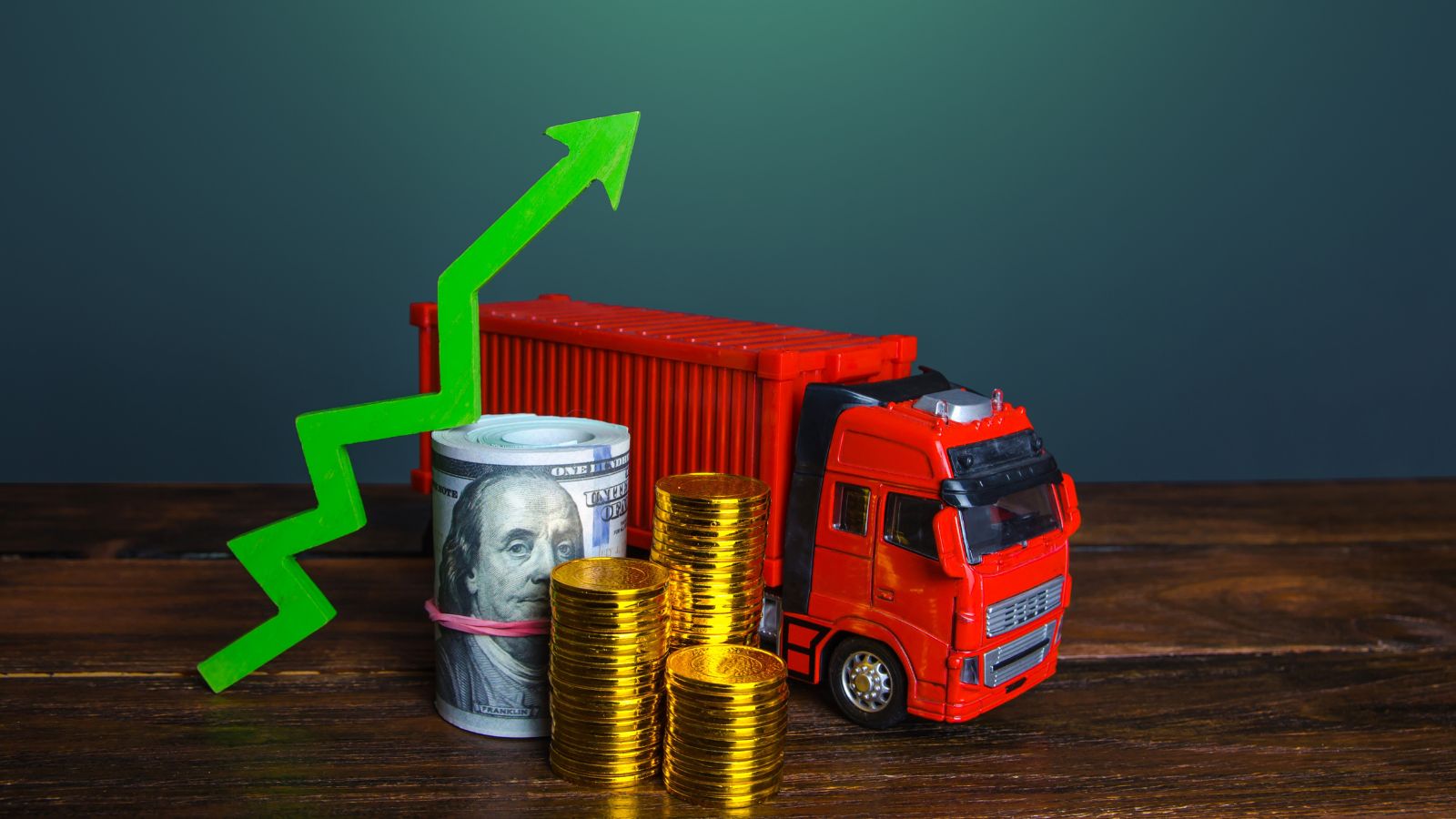Inflation is a gradual price increase affecting nearly every aspect of our daily lives. An increase in the cost of goods and services means a decrease in purchasing power, which causes numerous financial issues. Nothing is immune to inflation, from the grocery store to health care to your favorite leisure activities. This can be a shocking economic phenomenon, for it is usually gradual and, by its very nature, often lets people overlook its pervasive effects in daily life. Here are 20 shocking ways in which inflation is affecting your everyday life.
Groceries

Inflation makes groceries expensive, so people have less money to spend on the same amount of food. This often leads them to replace their usual products with cheaper items or larger quantities to save money. In this way, people start making less healthy food choices. Producers and stores also face higher costs for food manufacturing and transportation, so they raise prices or offer subpar quality.
Healthcare

Inflation increases the prices of drugs, medical equipment, and staff salaries. Therefore, health providers raise treatment costs, thereby transferring the cost to the patient through higher out-of-pocket costs and insurance premiums. Such increases in healthcare access difficulties, particularly in low-income populations, occur.
Utilities

It is also severely affecting utilities. We heavily rely on electricity and water, and the costs of electricity, water, and heating could increase primarily due to increased fuel costs and higher demand. Utility companies can pass on these increases to consumers, as manifested by higher monthly bills. Eventually, many people have to use less electricity and minimize the use of “luxuries” like air conditioning.
Gasoline

Inflationary pressure increases the price of gasoline by making production more expensive due to rising material and labor costs, devaluing the currency in terms of money, which makes oil pricier, raising interest rates that heighten the borrowing costs for oil companies, and reducing demand due to decreased disposable income from the side of consumers.
Housing

Inflation also affects the housing sector by raising home prices. As property values go up, so does the demand for housing, hence an increase in rent and mortgage rates. Other factors, such as rising maintenance costs and property taxes, construction costs, etc., may raise expenditures. Higher home prices badly affect low-income populations. It is difficult for them to fulfill their basic needs because much of their income goes towards paying rent.
Dining Out

Inflation increases the price of ingredients and running restaurants to higher menu prices. Some places might serve smaller portions or reduce quality to manage the rising expenses. People might reduce outings or opt for cheaper options as dining out becomes more expensive. This will also squeeze the profit margins of restaurants, affecting their service and food quality. Inflation makes eating out pricier and changes how often people dine out.
Education

Inflation raises the cost of education through increased tuition, student debt, and study materials. It may also influence public funding cuts in schools and decrease teacher salaries, which leads to less affordability and probably worse quality of education.
Clothing

Apparel prices increase if the cost of raw materials, such as cotton, rises, and production increments, including higher labor and transportation costs, increase. This, in turn, makes new clothes and shoes more expensive.
Transportation

Raising fuel prices, maintenance and repair costs, vehicle and ticket prices, and delayed shipments make transportation costlier. These factors make people opt for cheaper travel or reduce their travel.
Travel

Inflation increases the cost of flights, accommodations, food, and activities. This is occasioned by an increase in fuel costs, higher labor costs, and price increments within the travel industry. Rerouting the budget, finding more pocket-friendly destinations, or dealing with currency fluctuations that may make trips expensive may be involved. Higher interest rates can also impact the cost of financing travel.
Entertainment

Inflation impacts ticket prices for movies, concerts, and rides, increasing the cost of movie and show productions and, probably, subscription fees for streaming services. If living costs get too high, people will spend less on entertainment, thus affecting revenues for theaters and live events.
Personal Care

Personal care is becoming more expensive because of inflation, which means higher prices of goods and services. Skincare, haircare, and makeup products are all rising in price, and people may have less money to spend on them. Most will then start using cheaper brands or reduce the purchase of non-essential products. Other services like going to salons or getting a spa treatment will also be more expensive, making people use them less often.
Childcare

With rising inflation, the operating costs of daycare and after-school programs have surged, making childcare increasingly expensive. This essential service for professional individuals is becoming unaffordable, posing significant financial challenges for many families.
Savings

Inflation affects savings by degrading their value. Money that does not earn a return above the inflation rate effectively loses value over time. Having an emergency fund as a savings cushion becomes harder in inflation, as unexpected expenses can become more challenging when prices increase. You can optimize your savings by understanding and managing such expenses and making informed decisions.
Investments

It also reduces the actual value of investment returns, making earnings less valuable. Stocks will benefit if companies raise prices but suffer if costs increase faster. Real estate normally holds up because property values and the rents that come with them rise. Commodities like gold can hedge against inflation but are generally volatile. The value of cash and regular bonds decreases; inflation-linked bonds adjust for inflation.
Miscellaneous Goods

Inflation doesn’t just affect big-ticket items; it also impacts the cost of everyday essentials. For instance, the prices of cleaning supplies, pet food, and other sundry goods have been progressively rising. This can add up and impact the overall cost of living.
Insurance

Inflation impacts insurance because premium costs increase with settlements, which include things such as repairs and medical treatments. Insurers can raise policy limits to cover the increased costs, and their investments could become less valuable, making policies more expensive. Insurers’ operational costs increase as well, pushing up premiums. High inflation may alter the level of insurance purchase, whereby people may opt to insure their property less for the sake of saving on the money paid towards the insurance, thereby altering the insurer’s risk.
Home Maintenance

High material and labor costs are two prominent factors contributing to the rising costs of home repairs, renovations, and maintenance services. The increased costs, mainly driven by inflation, affect most homeowners’ budgets for upkeep and improvement.
Technology

The technology sector is also significantly affected by inflation. Prices of electronics and gadgets may rise because manufacturers are likely to pass on the higher costs of components and manufacturing. That will make replacing or upgrading devices such as smartphones, smart watches, video games, laptops, or televisions cost more than usual.
Debt

It reduces the real value of money, making debt cheaper to repay for the borrowers, thereby benefiting them and affecting the lenders. This mostly results in higher nominal rates of interest. Borrowers who have fixed-rate loans may also be better off with stable payments, although the lenders would face a loss in the value of this money. A government with heavy debts could manage it better, though short-term or inflation-indexed debt could become dearer.
Conclusion

The effect of inflation can be profound and wide-ranging, from mundane concerns of food and shelter to discretionary expenditures of eating out or traveling. As prices rise, purchasing power declines, expenses for essential needs and services increase, additional pressure on family budgets is put on, and financial stability decreases. Matters are made worse by increasingly high healthcare, education, and childcare costs, while the erosion of savings and investments takes a big dent out of long-term financial planning. Grasping these changes and learning to adapt to them is vital in lightening the blows of negative impacts from inflation and securing financial well-being on an increasingly expensive planet.
5 Canadian Provinces Predicted to Thrive in the Next Economic Boom

5 Canadian Provinces Predicted to Thrive in the Next Economic Boom
